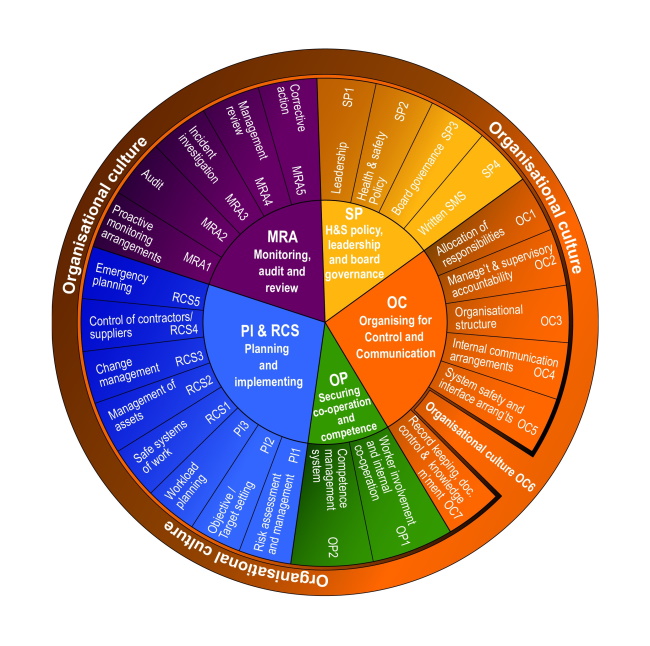And More Resources and Services
-
Risk Management Maturity Model [RM3]
The Risk Management Maturity Model [RM3] helps the rail industry increase its capability in health and safety risk management. The model was developed by the Office of Rail and Road (ORR) to assess an organisation’s ability to successfully manage health and safety risks. It can help identify areas for improvement and provide a benchmark for year-on-year comparison.
You can use a wide range of our services and resources to improve your safety risk management culture, systems and processes that are assessed by the ORR. Where applicable, RM3 codes have been added to our services and resources.

Standards
Standards help make a better, safer railway. Agreed by the industry, standards are developed and maintained by RSSB. They may be mandatory or optional, depending on type; and describe a common way of working in areas where they apply.
Railway Group Standards, Rail Industry Standards and Guidance Notes cover seven specific areas: Control, Command and Signalling; Data, Systems and Telematics; Energy; Infrastructure; Plant; Rolling Stock; and Train Operations Management.
- The Standards Consultation Portal: lists documents currently open for industry consultation.
- Deviations Register: a database of deviations submitted, approved, in force and withdrawn.
Research & Development
The government-funded, cross-industry R&D programme covers subjects that would be of benefit to the whole, or a large part of, the industry. Issues that would not be commercially viable for one company to investigate.
The research & development programme scope includes engineering, operations and management topics that aim to deliver reductions to industry cost and carbon footprint, increases in capacity and customer satisfaction, and improvements to safety management.
SPARK: a knowledge sharing hub where contributors can find and share information on research and innovation.
Training opportunities
Remote and face-to-face training courses: We offer training courses to help the professional development of rail employees and make a positive impact on your business. Our open courses are designed for individuals and delivered through fixed curriculums. We also offer bespoke courses tailored to your needs.
Events
Events and Webinars: RSSB runs a range of rail events, conferences and seminars across its busy schedule. Our events aim is to bring rail professionals and subject matter experts together to an exchange of knowledge and place for networking.
Supplier Approval Scheme
Railway Industry Supplier Approval Scheme (RISAS): With RISAS, suppliers can become recognised as best-in-class at delivering the most challenging and high-risk products and services to the railway.
RSSB Consultancy services
RSSB consultancy: Through our expertise and experience we empower and support our clients to resolve complex problems in their businesses, demystifying the challenges they face and providing workable solutions.
Keeping you informed
We produce regular information bulletins around the work we are doing to help deliver a better, safer railway.
- Level Crossing Digest: industry’s corporate memory for level crossing development and risk mitigation.
- Railway Legislation News: a web page with news and updates on emerging and evolving railway legislation and standards.

